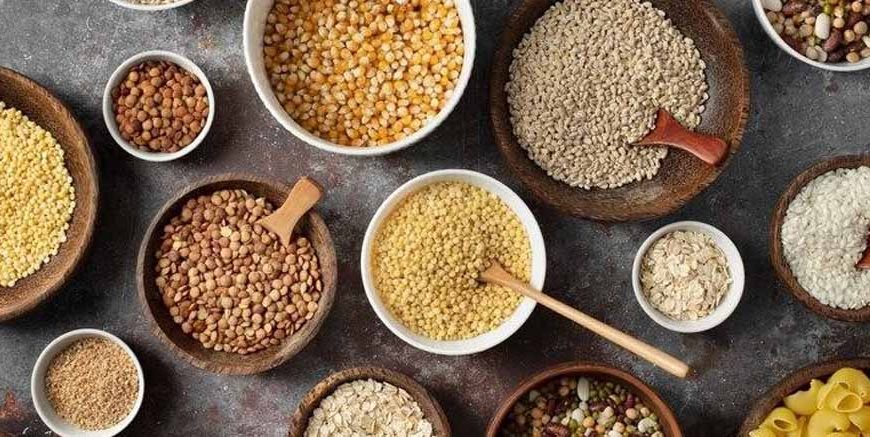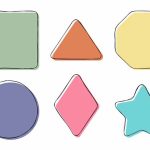Being parents, it becomes our responsibility to look forward to new food items which can be healthy for our kids. They are the following: While there are a lot of recommended superfoods today, people have been turning their focus to millet lately. But what does this term ‘ millet’ mean and ‘is it the best option I should be feeding my baby? Now let us navigate through the little-known territory of millets and find out why these could complement your baby’s diet to perfection.
Table of Content:
- Millet for Baby
- Which Millet is Good for Babies?
- Best Millet for Babies
- Millet Benefits for Babies
- Is Millet Good for Babies?
- Incorporating Millets into Your Baby’s Diet
Millet for Baby:
Millets are small seeded crops belonging to the grass family which have been cultivated for thousands of years. This type of food is common in many countries of Africa and Asia to think of it as necessary. Millets have ample nutrients; they are easily digestible foods and are suitable for cooking. But how does this apply to the nutrition of your baby?
Taking millet as part of the diet can also be effective in ensuring that the baby gets a lot of nutrients in his or her diet. Of course, it is gluten-free, and that is one good reason why babies can take it if they have gluten intolerance or for those parents desirous of them accepting a variety of grains from an early age. Millets also are less allergenic than so many other grains, which is very advantageous especially when one is trying to introduce the baby to new foods.
Which Millet is Good for Babies?
When it comes to choosing the right millet for your baby you have got some options as mentioned below. Some of the most popular types include:
- Finger Millet (Ragi):
- Pearl Millet (Bajra):
- Foxtail Millet:
- Little Millet:
High in calcium, this cereal is often suggested for weaning babies in many parts of India being the first solid food they need.
In addition to fatty acids and eastern contents of iron and protein, pearl millet would be perfect for the growing up babies.
It is also rich in fiber diet as well as minerals that will be suitable for our digestion process.
Since there are no complex carbs involved, some quantity of fat, and lots of ‘B’ vitamins, it may be beneficial for infants.
All the types of millet have their own nutritional values and therefore one has to switch from one type of millet to the other in order to feed the baby with a variety of nutrients.
Best Millet for Babies:
But, when it comes to the choice of millet the best ones are more suitable to be used by babies than others. However, it should be pointed out that there is actually ‘the best millet’ depending on the diet of the baby and any dietary restrictions that are in place. As it is always advisable with many other parenthood related chores, it is always advisable to consult your baby’s pediatrician before trying out any new food on your baby.
Millet Benefits for Babies:
Millets offer a wide range of benefits for your growing baby:
- Nutrient-dense:
- Easy to digest:
- Gluten-free:
- Energy-boosting:
- Supports growth:
- Versatile:
Millet are good foods to eat as they are sources of protein,vitamin,minerals and even antioxidants.
Millet grains are very small and this then means that they are easy to be digested by the rather tender digestive system that your baby has.
The young babies with gluten intolerance or with celiac disease do not have to take any wheat containing cereals for they can reap a lot from the millets available in the local market.
The goodies included in millets such as complex carbohydrates ensure that your baby has a good source of energy for his or her activities.
The proteins and minerals of the millets enhance growth and development among persons consuming them.
Millets can be taken in various preparations and hence should not pose as a challenge when introducing it to a baby’s diet.
Is Millet Good for Babies?
The short answer is yes millet can be an excellent food for babies but it has to be introduced at the correct time and correctly prepared. Here are some key points to consider:
- Age of introduction:
- Preparation:
- Allergies:
- Variety:
- Moderation:
The common consensus is to start the prescribed solid foods such as millets when the child is about 6 months old. But every baby is unique, therefore it is necessary to seek advice from your pediatrician on this matter.
Initially prepare the thin porridge and as the baby begins to accept the solids, then add on extra thick ones.
Although millets are relatively non-allergenic, one should still be on the lookout for possible signs of an allergic reaction should the child be introduced to new foods.
Don’t rely solely on millets. The most important thing as regards feeding of the baby is that the child takes meals of diverse nature so as to get all the nutritional requirements.
However millets like any other foods should be given in small proportions. They have low fat and calories, however they should not be used as a substitute for breast milk or formula for infants under one year old.
Please bear in mind that the babies are all different and encourage what may be suitable for one baby but not the other. Never disregard any responses your baby gives or any changes in your child and consult the pediatrician.
Incorporating Millets into Your Baby’s Diet:
After learning about the various benefits of taking millets, the question that may come to your mind may be on how to incorporate it in your baby’s diet. Here are some ideas:
- Millet porridge:
- Millet pancakes:
- Millet and vegetable puree:
- Millet balls:
Millet is well cooked by adding water or milk to it then stirring it to form a paste or porridge. This you can top up with mashed fruits of your desire for extra taste and nutritional value.
Add millet flour with banana and a little milk to make semi-solid and soft sticky food in the form of pancakes.
For a healthy meal, one should mix the millet and the cooked vegetables and mash them then serve or mix the millet and the mashed vegetables.
Stir cooked millet with mashed potatoes and form small and soft balls which your baby will be able to grab.
It is also important to ensure that a new food is introduced one at a time and usually after at least 72 hours of the new food being introduced into the babies’ diet. In this way it will be easier to find out if there are any relevant allergies or intolerance.
Finally, it can be stated that millets can be useful ingredients that can contribute to an enhanced and beneficial diet for a baby. It is versatile as they can be prepared in many ways as per the preference of your baby and their age. Like any other new food, millets must be introduced in small portions and only when you consult your pediatrician.
Happy feeding!
For more such interesting blogs, Visit EuroKids















